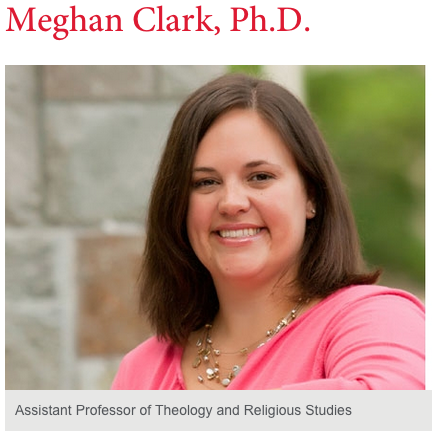 We can borrow Vincent de Paul’s tough questions about how to best help those most in need. So writes Meghan Clark sharing her post Vincentian pilgrimage reflections on immigrant communities Paris and Queens.
We can borrow Vincent de Paul’s tough questions about how to best help those most in need. So writes Meghan Clark sharing her post Vincentian pilgrimage reflections on immigrant communities Paris and Queens.
… My pilgrimage (to Paris with others from the three Vincentian Universities in the US) contrasted news reports of unaccompanied children crossing the border into the United States, only to be met by protestors chanting, “Not our children! Not our problem!” Vincent faced a similar problem when he focused his attention on the unpopular cause of “foundlings,” infants abandoned in the wake of widespread war and poverty. When facing such issues, Vincent learned to ask the right questions. We can learn to evaluate the world around us by asking ourselves those same questions:
What is going on? Americans like action; we are always on the go. However, before you can act, you need to listen, observe, and reflect. Thinking about the thousands of unaccompanied minors, do we hear their stories? Are we honestly examining the ongoing reality of transnational gang violence in Honduras, Guatemala, and El Salvador?
What must be done? Churches like Sacred Heart Parish in McAllen, Texas have opened their doors to care for these children. Massachusetts Gov. Deval Patrick, with support from faith leaders such as Boston’s Cardinal Seán O’Malley, offered the use of two local military bases to house the immigrant children. What must be done? The first step is to start with the vulnerability and humanity of the children.
How must it be done? Deep down, we want to help our neighbors. We need to be coordinated and respond to both suffering and injustice as a community. Today this means attending to both the needs of vulnerable children and to how we work with governments to provide long-term security.
What motivates and nourishes our actions? In The Joy of the Gospel, Pope Francis warns against arrogance and self-righteousness in Christian lives—there is a danger in helping others because it makes us feel “good.” For Vincent, the correction against self-righteousness came from the deep connection to Jesus Christ and the love and mercy of God. How does Jesus motivate our actions?
Am I embracing the image of God in myself and others? All vulnerable children are the infant Jesus. We too are created in the image of God; we are the face of Christ. Am I embracing myself as the image of God? Am I embracing my neighbors, even those with whom I do not see eye to eye?
Looking at the divergent responses toward unaccompanied children fleeing violence in Central America, our reality does not seem so different from Vincent’s. Asking ourselves these questions can help us come together to see what is going on, to ask what must be done, and to take action, nourished by faith and embracing the image of God around us.
This article appeared in the October 2014 issue of U.S. Catholic (Vol. 79, No. 10, page 8).
Image: Flickr photo cc by MariaRoma
Meghan J. Clark is an assistant professor of theology at St. John’s University in New York. She is author of The Vision of Catholic Social Thought: The Virtue of Solidarity and the Praxis of Human Rights (Fortress).
SEE MORE POSTS BY MEGHAN J. CLARK







0 Comments